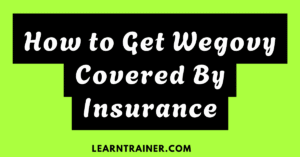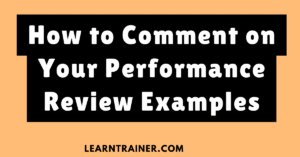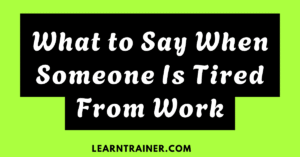You’re driving down a quiet country road, the sun setting low on the horizon, and you feel a sense of peace.
Suddenly, out of nowhere, a deer leaps across the road, and before you can react, you collide with it.
The impact shakes you, but thankfully, you’re okay. However, your car isn’t looking so great, and you’re left wondering does your insurance cover hitting a deer?
It’s a situation that’s more common than you might think, especially if you live in areas where wildlife is abundant.
Deer-related accidents account for thousands of crashes every year, and the last thing you want to worry about after such an event is whether or not your insurance will cover the damage.
In this article, I’ll walk you through everything you need to know about insurance coverage for deer collisions.
From understanding what types of insurance cover these incidents, to how to file a claim, and even common mistakes to avoid, I’ve got you covered (pun intended). By the end, you’ll be well-informed and ready to navigate this situation should it ever happen to you.
What Happens When You Hit a Deer?
Before diving into insurance specifics, it’s important to understand what happens during a deer collision.
When a deer suddenly runs across the road, drivers are often faced with a split-second decision. Swerving to avoid the animal can cause even more severe accidents, so most people instinctively try to brake and minimize damage. Unfortunately, hitting a deer often results in significant vehicle damage, especially to the front end.
Some of the most common types of damage caused by hitting a deer include:
- Bent or broken bumpers
- Damaged headlights or taillights
- Cracked windshields
- Destroyed fenders and grills
- Airbag deployment (in more severe accidents)
These kinds of accidents typically happen in rural areas, where deer tend to roam. However, they can happen anywhere, even near urban or suburban roads, especially at dawn or dusk when deer are more active.
Will Insurance Cover the Cost of Damage?
Now that you have a sense of what happens during a deer collision, the next big question is whether or not insurance will help pay for the damage. The short answer is: It depends on your type of coverage.
Generally, the type of car insurance you have will determine whether or not your insurer will cover the cost of hitting a deer.
1. Comprehensive Coverage
Comprehensive coverage is the most common type of insurance that covers hitting a deer. This type of insurance is designed to protect against non-collision-related damage, including incidents like theft, vandalism, and natural disasters.
Hitting a deer falls under the category of “accidents involving animals,” and most comprehensive policies will cover the repairs to your car.
For example, if you have comprehensive coverage and you hit a deer, your insurer will likely pay for the repairs minus your deductible.
If your vehicle is a total loss, your insurer will typically pay the actual cash value (ACV) of the vehicle, again minus your deductible.
2. Collision Coverage
Collision coverage, on the other hand, is designed for situations where your vehicle collides with another vehicle or object, like a tree, fence, or yes, even a deer.
If you have collision coverage as part of your policy, it will pay for the repairs or replacement of your vehicle in the event of a deer accident.
Collision coverage will cover damage to your vehicle regardless of who or what was at fault, which makes it more comprehensive for situations where comprehensive coverage might not apply.
However, it’s important to note that collision coverage can be more expensive than comprehensive coverage, so if you’re not in an area where wildlife collisions are common, you might decide it’s not worth the extra cost.
3. Liability Insurance
Liability insurance, which is required by law in most states, does not cover hitting a deer. Liability insurance only covers damages to other vehicles and property if you are at fault in an accident.
Since hitting a deer is typically considered your fault, liability insurance won’t cover the costs of your car’s repairs or replacement.
What to Do After Hitting a Deer
If you ever find yourself in the unfortunate situation of hitting a deer, here’s what you should do:
Step-by-Step Instructions
- Stay Calm and Pull Over: Immediately slow down and pull over to the side of the road. Make sure you’re in a safe area away from traffic.
- Check for Injuries: First, check yourself and any passengers to make sure you’re okay. If there are injuries, call emergency services immediately.
- Call the Authorities: Contact the local police or animal control to report the incident. In some states, it’s required by law to report a deer collision, even if no one is injured.
- Document the Scene: Take photos of the damage to your car, the area around the crash, and the deer (if it’s still in the area). These will be useful for your insurance claim. Also, make a note of the time, location, and any relevant details.
- Contact Your Insurance Company: Call your insurance provider and report the incident. If you have comprehensive or collision coverage, they’ll guide you through the claims process.
- Follow Up: After filing the claim, follow up with your insurance company to ensure the process is moving smoothly. You may be required to take your car to an approved repair shop for an estimate.
Common Mistakes to Avoid After Hitting a Deer
Now that you know what to do, here are some common mistakes people make when dealing with a deer collision, and how you can avoid them:
1. Not Reporting the Incident
Many drivers assume that because they hit an animal, they don’t need to file a police report or contact their insurance. This is a mistake. In some states, it’s required by law to report collisions with wildlife, and not doing so could result in a fine or complications with your claim.
2. Failing to Document the Damage
If you don’t take pictures or write down details about the accident, you could run into trouble with your insurance claim. Documentation is crucial when proving the extent of the damage and your need for repairs.
3. Not Reviewing Your Insurance Coverage
If you don’t understand your policy, you might not know what’s covered when you hit a deer. Be sure to review your coverage ahead of time and ask your insurance agent any questions you may have about your specific policy.
4. Ignoring the Deer’s Fate
If the deer is still alive, it’s important to call animal control or the authorities to safely remove it from the road. Leaving a deer on the road can create a hazard for other drivers, and ignoring it could result in additional fines.
What’s the Cost of Insurance for Hitting a Deer?
If you’re concerned about how much your insurance will cost after hitting a deer, it’s worth noting that the cost of insurance typically won’t increase significantly from a deer collision.
Since comprehensive and collision coverage are usually involved, and these types of claims are considered “non-fault,” they don’t generally result in a massive premium hike.
However, there are a few things that might affect your rates:
- Your Deductible: The higher your deductible, the lower your premiums. If you choose a lower deductible, your premiums will likely be higher, but you’ll pay less out of pocket for the accident.
- Your Location: If you live in an area with frequent wildlife accidents, your premiums may be higher due to the increased likelihood of such incidents.
- Your Claims History: If you have a history of frequent claims, your insurer may consider you a higher-risk driver, which could lead to an increase in premiums.
Table: Types of Coverage for Deer Collisions
| Type of Coverage | What It Covers | Will It Cover Hitting a Deer? |
| Comprehensive Coverage | Damage caused by non-collision incidents (weather, animals, etc.) | Yes, usually covers deer collisions |
| Collision Coverage | Damage caused by colliding with any object or vehicle | Yes, covers hitting a deer |
| Liability Insurance | Damage to other vehicles or property when you’re at fault | No, does not cover your own vehicle |
Conclusion
Hitting a deer is a scary and often costly experience, but understanding your insurance coverage can take a lot of the stress out of the situation.
The key takeaway here is that comprehensive coverage is your best friend when it comes to handling accidents involving wildlife like deer.
However, it’s important to review your specific policy, and if you don’t already have comprehensive or collision coverage, you may want to consider adding it to avoid future headaches.
If you’ve had an encounter with a deer or have questions about your insurance coverage, feel free to share your experience or ask more questions in the comments.
I’d love to hear your thoughts! And remember, whether you’re a seasoned driver or new to the road, it’s always a good idea to review your insurance policy and be prepared for any situation.
FAQs
- What is the difference between comprehensive and collision coverage?
Comprehensive coverage protects against damage from non-collision incidents like weather or animals, while collision coverage protects you in the event of a crash with another vehicle or object. - Will my insurance cover the cost of hitting a deer if I don’t have comprehensive or collision coverage?
If you don’t have comprehensive or collision coverage, your insurance will not cover the damages. You may have to pay out of pocket for repairs. - Is there a deductible for deer collision claims?
Yes, both comprehensive and collision coverage usually require a deductible, which is the amount you’ll need to pay before your insurer steps in to cover the rest. - What should I do if I hit a deer at night?
If it’s dark, use your headlights to illuminate the area and keep your distance. If you’re unsure whether it’s safe, pull over and wait for emergency services to clear the road.


